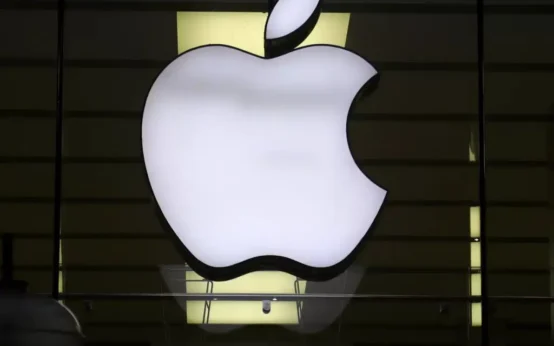- Introduction of 72 Sold Lawsuit
- Background of the 72 Sold Lawsuit
- The Lawsuit and its Key Players
- Allegations Against 72 Sold and Its CEO
- Impact on Investors and Customers
- Legal Proceedings and Settlements
- Lessons Learned from the 72 Sold Lawsuit
- Conclusion: The Importance of Due Diligence in Financial Investments
- FAQs:
Introduction of 72 Sold Lawsuit
The real estate market can be difficult for a novice and degenerate into a legal contest par excellence. Recently, one of the more controversial cases has been the 72 Sold lawsuit, which has left many agitated boomers looking for their ancient religions. The recent case is unsettling, with allegations that may undermine the investors’ faith. As we dissect this complicated situation further, we observe and try to extract information regarding what happened and what it means for all involved in the property business – investors searching for sound investment opportunities and ordinary clients searching for dependable sources. So, let’s start with how the events are dramatic and filled with details.
Background of the 72 Sold Lawsuit

The 72 Sold lawsuit resulted from the revolutionary real estate model that guaranteed quick house sales. Aimed at making sales efficient, the Model 72 Sold stood out because it made brave promises and was unique in its operation. Homeowners were tempted by the thought of selling their homes in three days.
But such rapid success drew some concerns, as more and more people gradually started questioning the practices involved. As the social buzz around ineffective or fraudulent management spread, problems could never be hidden.
The position worsened when several stakeholders complained against the company and its management. Marketing tampering, even financial affairs that some investors found unpleasant, were described in counts of allegations.
Unfortunately, what began as a bright-looking project ended up being a series of numerous legal battles that would forever impact everyone associated with the project.
The Lawsuit and its Key Players
The lawsuit concerning 72 Sold has attracted attention owing to its intricate relationships and accusations. 72 Sold is a real estate company that sells both books and houses. It specializes in a unique selling strategy.
Their CEO, whose dramatic visions seem to be the central pillar of their business, is accused of much more than some legal disputes. There are allegations of practices that may have left investors with the wrong impression as to what returns were available.
Then there are also people the others worked with in the past, the clients and investors, who say they were never given complete paperwork to read and peruse. Their words animate the figures in the court papers and highlight losses of individual stakes in the house business due to losses in panic.
Legal teams on both sides have focused on contracts and correspondence. The drama in the courtroom progresses as some witnesses give conflicting information about the level of honesty and trust in the business model.
This is a reasonably pleasant affair, but along with some individuals’ complaints, it also raises deeper issues of ethics in the market for real estate assets.
Allegations Against 72 Sold and Its CEO
The complaints against 72 Sold and its owner have shaken the real estate industry. Other accusations include fraud in which investors were deceived about the company’s financial status.
Some reports point to customers who were given strong assurances of returns that were never realized, and thus, their frustration and hatred grew. When disputes arose, many felt left out, which they claim brought about feelings of betrayal.
Issues about the company’s business model and TransparencyTransparency of movements were also mentioned. The critics argued that relevant information that would have been very critical to the investors was never given to them and that if it had been, this might have changed their decision dramatically.
With such allegations coming to the open, confidence in the brand diminished immediately. The stakeholders are now trying to understand whether they had a proper explanation regarding the deals with the 72 Sold and the people managing those businesses. The 3 case studies highlight a critical point concerning ethical behavior in business conduct in all sectors.
Impact on Investors and Customers
The 72 Sold lawsuit was a scandal that ruffled feathers within the investment community. The backers who believed in the company’s bright future found it unpredictable. A large majority suffered losses, struggling financially as their faith was lost.
Customers, however, were left fighting to fix their radars in a storm of confusion. The accusations questioned their trust in the services they provided and the customers. Some believed they had been fooled by what was once fanciful marketing techniques.
As the siege of news advanced, other potential clients who were contemplating any transactional dealings with 72 Sold Company felt anxious. They were still determining whether it was a matter of waiting and seeing until legal matters continued and an effective resolution was provided.
This scenario has provided insight into an important lesson. The absence of trust at the very beginning when an organization has not entered a business relationship is what exists in the competitive business world—an essential evil.
Legal Proceedings and Settlements
The legal affairs concerning the lawsuit on 72 Sold have taken a long and winding course. There were several hearings this time, and both sides had their say. The courtroom atmosphere was charged, with each side endeavoring to protect its position.
The documents that were submitted revealed a lot. The industry players and the media were very concerned about the judge’s orders regarding what documents were admissible.
Attempts at communication were made and served as a mechanism for settling the dispute. A number of the stakeholders proposed that it is futile for any party to drag any confrontation in the courts, for time is a great enemy. It was hoped that discussions could be held to reach an agreement that would limit the extent of the damage caused by the delays.
Although some discussions ended with the parties agreeing on some issues, others did not budge from their stand. These descriptions clarified the prospects regarding the timing and unusual pace of the developments in the legal proceedings. In such dramatic circumstances, everything seemed to be crucial: strategies, tactics, and the tiniest details of every step in this haunting case.
Lessons Learned from the 72 Sold Lawsuit
The lawsuit against 72 Sold teaches important lessons for prospective buyers and investors. One of them is the paramount importance of conducting comprehensive due diligence prior to entering into any type of contractual agreement. Knowing about the company’s standing, modus operandi, and the people running it can protect individuals from losses.
Another important aspect is the need for TransparencyTransparency. Trust can be built if the company actively informs its clients about how its service will be delivered and what has been promised. The absence of clear communication can cause confusion, which can sometimes lead to legal actions.
Moreover, this case also highlights the need for legal notice in transactions involving finances and that this transaction appears to be more complex than it is. A competent specialist would avert risk and support informed decision-making.
Organizations need to develop a culture of responsibility and ownership among employees. When leaders elevate unethical practices to organizational prominence, everyone learns and that operation is bound to benefit customers and shareholders.
Conclusion: The Importance of Due Diligence in Financial Investments
The 72 Sold legal battle mainly reminds us how challenging and risky any financial undertaking may be. As it stands, legal interfaces and disputes are pretty unforeseen and impact not only the companies in question but also their shareholders and clients.
Research is significant for anyone considering investing in any opportunity. One can avoid costly blunders by learning about the business strategy, the team in charge, and any possible issues ahead of time.
Remember that every new business venture should be considered carefully for all investors. In a climate of overwhelming noise and bold marketing tactics, making an informed decision based on due diligence is the key to decision-making. The repercussions of this tussle illustrate how important it is to thoroughly investigate every opportunity before making any financial investments.
We shall remain alert as we advance in a financial climate that keeps becoming more intricate and complicated. This will ensure that people can shield their interests in whatever way they may be threatened as they face the many challenges they encounter.
FAQs:
Question 1: What is the 72 Sold lawsuit concerning?
Answer: It revolves around wrongful acts, fraud, and deceptive practices of a real estate company called 72 Sold.
Question 2: In what way did the 72 Sold plaintiff affect investors?
Answer: Investors were exposed to loss since they made some investments based on false promises and could not see the clarity that met the expectations.
Question 3: Why did the 72 Sold plaintiff sue?
Answer: The false marketing claims and those promoting it were not legally entitled to undisclosed financials.
Question 4: Who are the stakeholders in the case concerning 72 Sold?
Answer: The main stakeholders include the CEO, investors, and customers.
Question 5: What are the allegations of the Mariassi 72 Sold case?
Answer: The case involves. Fraud, deceptive marketing, and lack of transparency regarding financial dealings.
Question 6: How has the Mariassi 72 Sold case affected the real estate business?
Answer: Concerning the fact that ethics and trust in the transactions were compromised,
Question 7: What do the case participants say regarding the Mariassi 72 Sold case?
Answer: You need to carry out due diligence and be transparent when making deals that involve money.
Question 8: How old is the case concerning 72 Sold and when did it begin?
Answer: So much in american legal and 72 Sold has been so long with several procedures involved like hearings and settlements.
Question 9: How did the 72 Sold case impact the clients?
Answer: Clients pointed out that they were deceived and cheated by the company.

 Need Money for Porsche: A Hilarious Meme Turned Trend
Need Money for Porsche: A Hilarious Meme Turned Trend  Does Ross Take Apple Pay? Find Out if It’s Accepted!
Does Ross Take Apple Pay? Find Out if It’s Accepted!  RJcnrj: Empowering Digital Transformation with Cutting-Edge Technologies
RJcnrj: Empowering Digital Transformation with Cutting-Edge Technologies